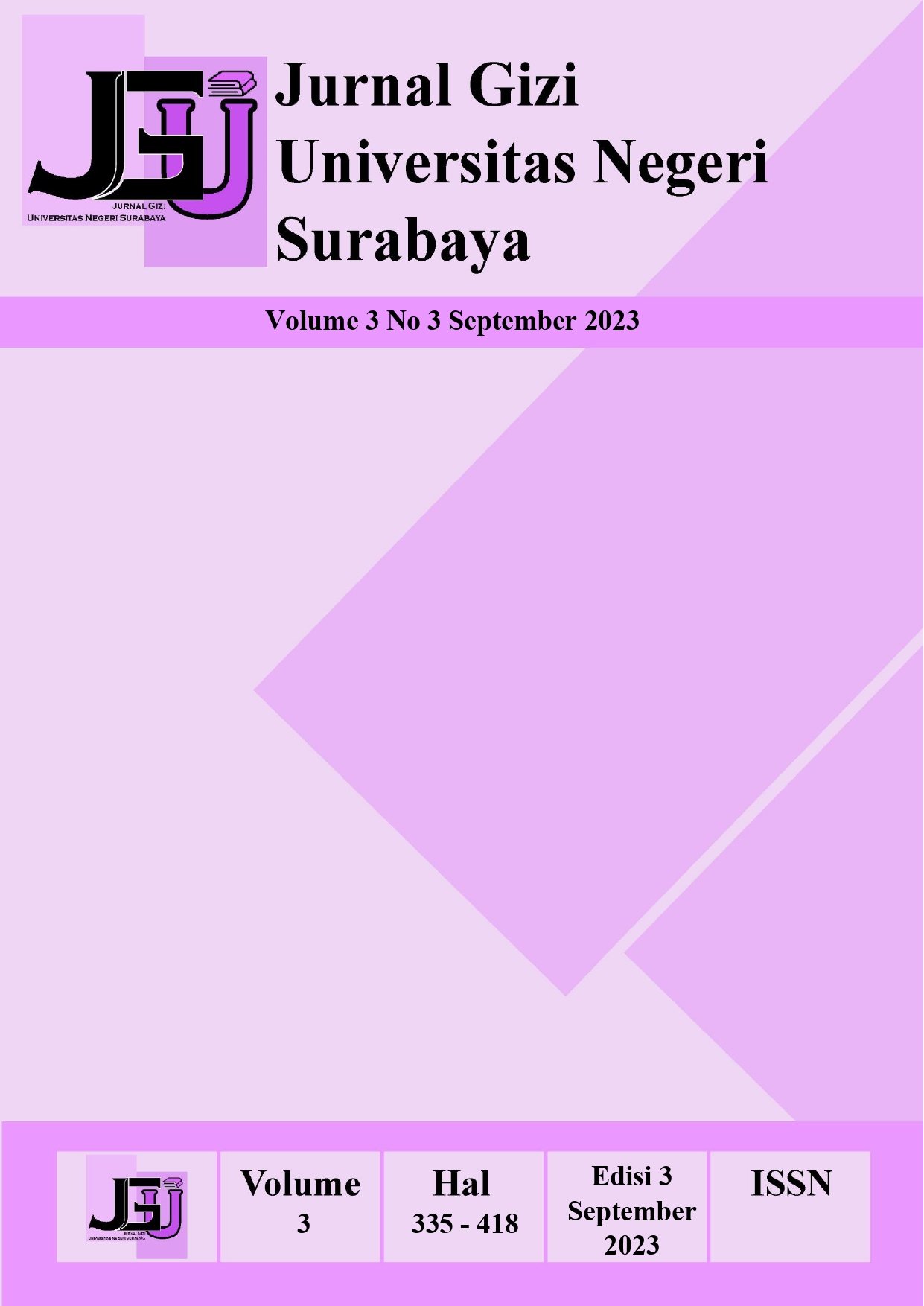Perbedaan Konsumsi Gula Selama Stres Akademik Antara Mahasiswi Gizi Dengan Mahasiswi Gizi Angkatan 2018 Universitas Negeri Surabaya
Keywords:
Academic Stress, Sugar, Sweet Sugar Beverages (SSB), Healthy LifestyleAbstract
Academic stress is a response or self-reaction of an individual, both physically and emotionally, in dealing with a problem related to academics. When stres out, someone will tend to eat good foods such as sugar to reduce the stress. The aims of this study were (1) to identify the academic stress of nutritional and non-nutritional female students; (2) to identify the consumption of sugar during academic stress between nutritional and non-nutritional female students; (3) to identify the types of food and beverages consumed by nutritional and non-nutritional female students during academic stress; and (4) to analyze the difference in sugar consumption during academic stress between nutritional and non-nutrition students. This research is quantitative research with a comparative descriptive method. Respondents in this study were all nutrition students from the class of 2018 who had not graduated, totaling 36 female students and 36 non-nutrition female students. Data analysis used the Independent Sample T-Test. The results of this study showed that (1) most of the nutrition students (80.56%) and non-nutrition students (88.89%) experienced moderate stress, (2) the average daily sugar consumption of nutritional students during academic stress was 29.47 grams while non-nutrition female students were 32.36 grams, (3) types of food that were often consumed when experiencing academic stress were wafers, bread/cakes, and candy, while sweet drinks consumed were tea, ice cream, and fruit juice, and 4) there was no significant difference in the level of sugar consumption during academic stress between nutritional students and non-nutrition students (p-value = 0.528).Downloads
Download data is not yet available.
Downloads
Published
2023-10-23
How to Cite
Pribadi, S. P. and Ruhana, A. (2023) “Perbedaan Konsumsi Gula Selama Stres Akademik Antara Mahasiswi Gizi Dengan Mahasiswi Gizi Angkatan 2018 Universitas Negeri Surabaya”, Jurnal Gizi dan Kesehatan Nusantara, 3(3), pp. 409–418. Available at: https://ejournal.unesa.ac.id/index.php/GIZIUNESA/article/view/53786 (Accessed: 25 February 2026).
Issue
Section
Artikel
 Abstract views: 465
,
Abstract views: 465
, PDF Downloads: 757
PDF Downloads: 757


